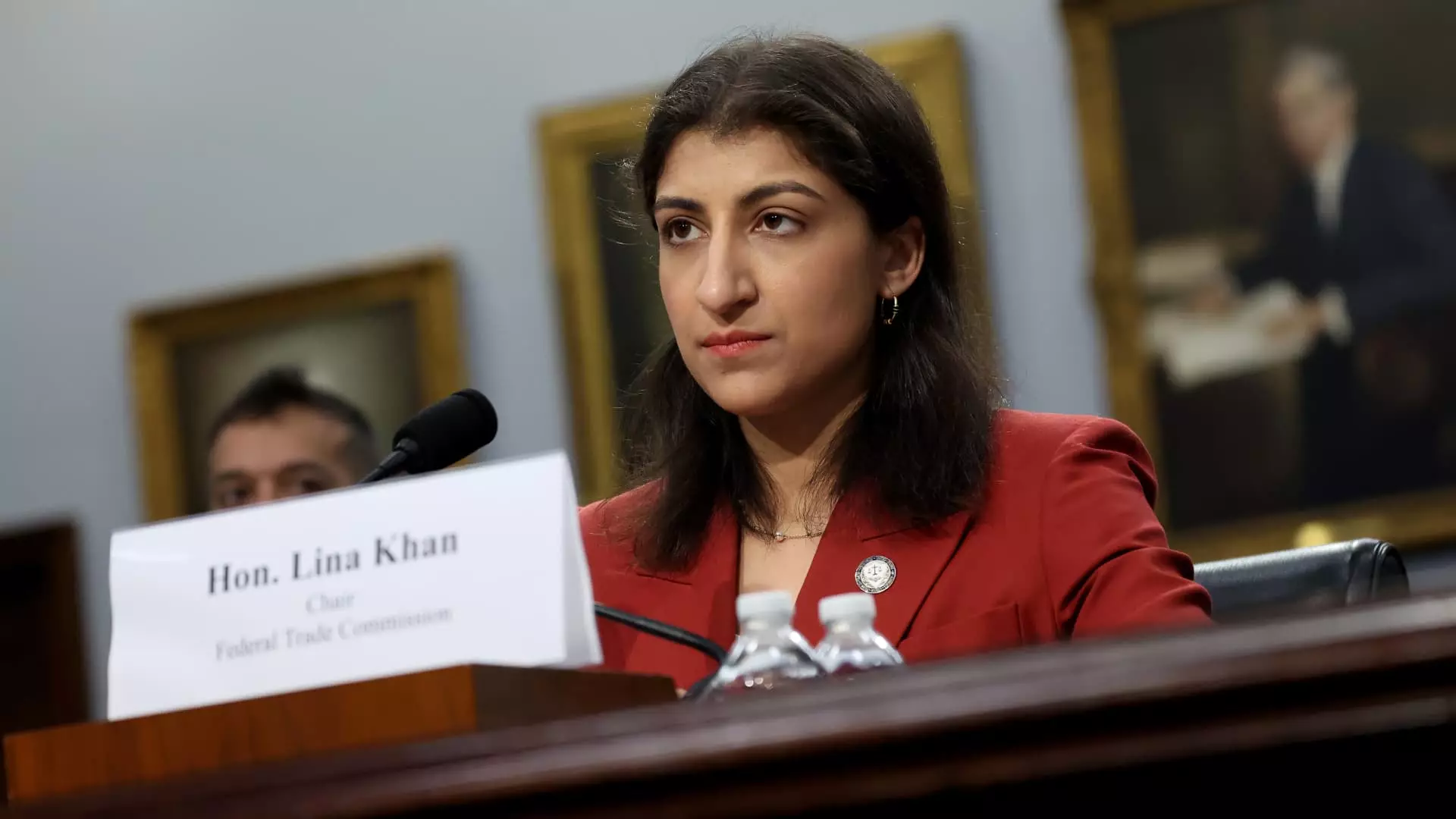The rising cost of insulin has become a pressing issue for millions of Americans suffering from diabetes, prompting the Federal Trade Commission (FTC) to launch a significant lawsuit against the three largest pharmacy benefit managers (PBMs) in the United States. This move is far from just a legal endeavor; it encapsulates a deeper concern regarding the opaque dynamics within the pharmaceutical industry that continue to squeeze patients at the pharmacy counter.
The FTC’s lawsuit targets UnitedHealth Group’s Optum Rx, CVS Health’s Caremark, and Cigna’s Express Scripts—entities that manage the process of drug distribution and reimbursement. Collectively, these firms control nearly 80% of the nation’s prescription drug transactions. The FTC’s contention is that these PBMs are not only acting in a way that prioritizes their profit margins but are also facilitating a system that artificially inflates insulin prices beyond reasonable levels.
Central to the allegations is the claim that these PBMs operate within a “perverse” rebate structure that favors high-list-price insulin products. For patients and caregivers, this translates to soaring out-of-pocket costs that could have devastating consequences. The FTC underscores that many diabetics have had to ration their insulin due to its high prices—a situation that threatens their lives and wellbeing.
The human cost of these pricing practices cannot be overstated. Statistics indicate that about eight million Americans depend on insulin for survival, and increasing prices worsen their living conditions. The ramifications extend beyond those in immediate danger; the healthcare system itself faces pressure as untreated diabetes can lead to complications that require even costlier interventions.
While President Biden’s Inflation Reduction Act aims to cap insulin costs for Medicare recipients at $35 per month, this relief does not extend to patients with private insurance. As the FTC highlighted, Americans are facing drug prices that are often two to three times higher than what patients in other developed countries pay. This presents a significant public health concern, raising questions about the efficacy of the American healthcare system and its commitment to patient care.
In response to the lawsuit, representatives from the PBM industry have taken a defensive stance. CVS Health’s Caremark assertively labeled the FTC’s accusations as misleading, emphasizing their commitment to making insulin affordable for Americans. Similarly, Express Scripts characterized the lawsuit as “unsubstantiated,” pointing to an alleged pattern of attacks on PBMs that the FTC has exhibited over the years.
Moreover, the FTC’s inquiry is not limited to PBMs alone. It could soon extend its scrutiny to pharmaceutical giants like Eli Lilly, Sanofi, and Novo Nordisk. These manufacturers, which control approximately 90% of the U.S. insulin market, are also implicated in the debate over drug pricing. The FTC has argued that their practices, particularly in relation to rebate negotiations with PBMs, contribute to the upward pressure on prices.
The FTC’s lawsuit represents not just a moment of accountability but also a critical opportunity for reform within the insulin market—potentially reshaping drug pricing mechanisms in the U.S. The complaint initiates an administrative process where an administrative judge will hear the case, allowing for a thorough examination of the claims and practices at play.
If successful, the outcome of this lawsuit could ripple beyond just insulin prices—it may pave the way for deeper reforms that promote transparency, competition, and fairness in drug pricing overall. Such shifts could significantly lessen the financial burdens that many patients face and facilitate greater access to necessary medications.
The rising cost of insulin is emblematic of a broader crisis in prescription drug pricing in America. The action by the FTC to challenge the practices of major PBMs is an essential, albeit overdue, step toward addressing the multifaceted issues that keep drug prices unjustifiably high.
As the case unfolds, patients, advocates, and policymakers must coalesce around the need for systemic reform in pharmaceutical pricing, ensuring that lifesaving medications like insulin are affordable and accessible for everyone who needs them. The complexities of the drug supply chain and the role of various stakeholders must be carefully scrutinized, and patients’ voices must remain at the forefront as we strive for a healthcare system that genuinely prioritizes patient welfare over profit.

